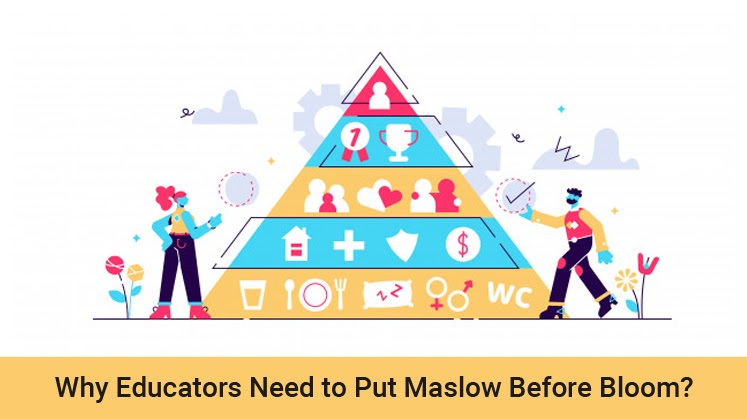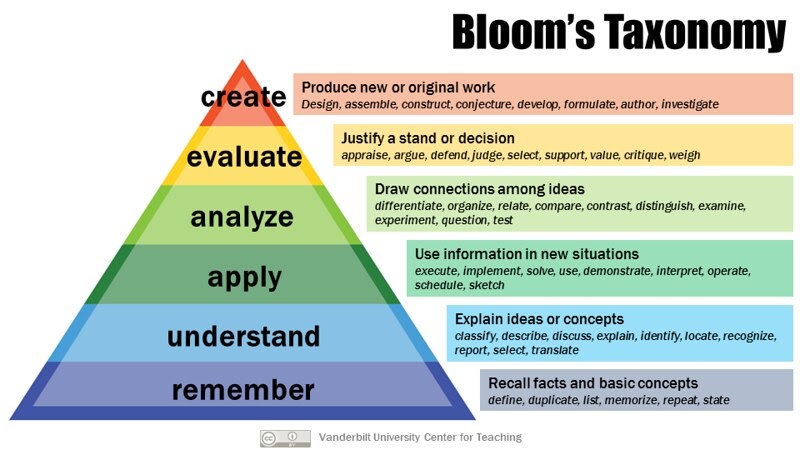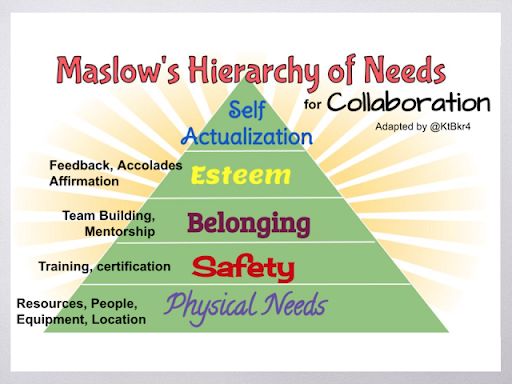
“Difficulties rise exponentially when school closures are prolonged…Schools, however imperfectly, play an equalizing role in society and when they close, inequalities become far greater.” Stefania Giannini, UNECO’s Assistant Director-General for Education.
Inequalities amongst children were always a matter of concern for educators, even when schools were functioning normally. For children coming from impoverished backgrounds or violent neighborhoods, teachers were the voice of sanity and reason, peace and protective love. And schools provided safety, nourishment, moral and emotional support to children going through traumatic childhoods.
Duncan-Andrade, founder and Board Chair at the Roses in Concrete Community School, talks of schools that lay more emphasis on the three R’s than on basic needs – food, shelter, hope and love. In his words, “You (need to) win the heart to get to the head. We keep banging on their heads.”(REf.)
The rapid shift to online classes has only served to underline these inequalities. The digital divide prevalent across the globe puts a question mark on whether we should have online classes at all. After all, whatever accentuates divisions instead of reducing them is best avoided in already divided societies and cultures. A rural activist and schoolteacher in India, Bhau Chaskar, is appalled at the pace and scale of the shift to remote learning. He states categorically that “this is nothing but digital partition”, given the absence of e-devices and internet connectivity in the hinterlands!
What is evident from the resistance to online learning (and occasionally online teaching) is the need to put Maslow before Bloom. It is no surprise that the post on education that is currently trending on Twitter is “Students have to Maslow before they can Bloom”.
Students have to Maslow before they can Bloom. - @TeachMrReed #Empower19 pic.twitter.com/djEC7dmrXf
— ASCD (@ASCD) March 16, 2019
In simpler language, we need to put basic needs before we can think of learning outcomes. Instead of fretting about whether children are being educated appropriately through a lockdown, we need to care more about whether they are safe, well-fed, well-clothed, adequately protected from abuse, getting enough sunlight, fresh air and exercise, love and attention.
The reality is that e-learning can hardly be blamed for the digital divide. In fact, there is much in remote education which puts Maslow before Bloom. The villain of the piece, if villain there must be, can be found in a couple of serious acts of omission. Let me explain.
Technological inequity
Shocking conditions of extreme poverty prevail even today in many parts of the globe. The pandemic has brought this disparity in incomes to the fore in every field. The underprivileged continue to suffer through the pandemic, only with far more intensity. COVID-19 with its stringent lockdowns has only exacerbated their condition. Nutrition, shelter, healthcare, mental health care, school education…even in the best of times, very few countries have been able to provide access to these basic public services consistently and in an egalitarian manner. In the worst of times, the indigent can be cut off brutally from life saving mechanisms. On the other hand, the rich continue to access top-notch healthcare, safe and hygienic surroundings, nourishing foods, good psychiatric treatment and the most advanced devices with 24/7 connectivity to enjoy an uninterrupted learning experience. The imperative responsibility to reduce disparities in income lies with all of us. Governments need to do their bit. We need to learn to share and give more happily of ourselves to create more egalitarian societies.
Poor professional development of educators
We have not invested enough in the professional development of our educators. Putting Maslow before Bloom could mean many things to many people. But primarily, it means being sensitive to the physiological, emotional, social needs of students first and foremost. From ensuring there are apples and healthy snacks available for children who may be fighting hunger to demonstrating your fierce and unconditional love for them to giving them the resources to realize their talents irrespective of their backgrounds – a good teacher can make every word, every gesture count. We have also not taught teachers to teach remotely. The gaps in pedagogical approach and teaching methodology need to be addressed without delay. We can no longer ignore information technology in education – not even when the pandemic is over and students return to school.
It will take decades to create more egalitarian societies. But ensuring that students from all strata of society have access to e-learning devices should not be that difficult. We also need to level out the playing field for public (state) schools, when it comes to school ERPs and technological infrastructure. The presence of EdTech in schools and homes and the professional development of educators are the sine qua nons to go up higher in Maslow’s hierarchy of needs.
It is possible to think up a hierarchy of digital learning needs…but only when the very basic physical needs of Wifi, a smart device and e-learning software are met. Kate Baker, English teacher, author and blogger shares her ideas on digital learning needs in an insightful blog titled: “Collaborating with Maslow”. Her hierarchy of digital learning needs is the digital equivalent of Maslow’s basic hierarchy of needs.
The pandemic, however tragic, has opened up a window of opportunity for educators. Teachers across the planet are learning the ropes of technology-based learning programs. By incorporating EdTech in their curriculums and classrooms, albeit under pressure, they are learning why, in education, Maslow’s theory comes before Bloom’s taxonomy. They are also learning that online teaching is most effective when SEL (Socio-emotional learning) forms the foundational base of their e-lessons. Finally, they learn that digital learning, to be truly engaging and useful, cannot put Maslow on the backburner.
Here’s why e-educators are learning to put Maslow before Bloom:
- To engage digitally with e-learners, one needs to draw them into the virtual classroom. Creating this feeling of connectedness between teacher and student requires that teachers display a high Socio-Emotional Quotient. Think Psychological Needs of Love/Belonging/Esteem.
- Are the students (and the teacher) well rested, well-dressed, in a decent setting with a neat background, with their devices charged and ready? Are they well nourished? Is the school equipped with a good school management system to store and process all the data released by the e-learning software? Think Physiological/Physical Needs at the bottom of the pyramid.
- Are we encouraging collaboration in the virtual classroom? Online lessons do not lend themselves well to long lectures and top-down instructions. Giving students options, giving the most timid student a voice, remembering always that the mental health of students directly impacts their learning outcomes – this is remote learning at its best. Think Psychological Needs again.
- Is every child safe from online hackers and perverts? Is the virtual classroom safe, with firewalls and filters? Have you invested in a video conferencing app that does not allow strangers to crash into your classes uninvited? Think Safety.
- Have you been able to shift the focus from formal education to learning? Have you been able to redefine the goals of learning? Tom Whitby’s perceptive blog aptly defines the goal of an educator thus: “Developing skills in students to be self-motivated and tech savvy to research, curate, communicate and create, as lifelong learners should be the goal of every educator. In our computer-driven world this will happen online.” Think Actualization, at the peak of Maslow’s hierarchy.
As learning objectives change, is Bloom’s taxonomy of educational objectives still valid for the e-educator? Yes, yes and yes…but only after basic physiological, physical, and emotional needs are fulfilled – i.e. at the very top of the pyramid.

And while we are at it, let us not forget the e-educator or the parent. Do we care if parents are at peace, if they have the wherewithal to digitalize their homes, if they can indeed liberate themselves from work (or work from home) to supervise their kids? Do we know how the teacher is doing, whether she has had a good night, whether she is at ease with the new tools thrust upon her almost overnight?
E-educators can put Maslow before Bloom, but, somewhere, all of us - parents, principals, school leaders, political leaders, the human on the street, children - all of us need to put Maslow before Bloom while dealing with each other, and with ourselves.
As the Dalai Lama puts it: “Be kind whenever possible. It is always possible.”
Recent
- NEP 2020 & College Autonomy: Complete Guide
- ICT For Higher Education - Smart Move Towards Online Teaching And Learning
- Online Examination Software For Post-Exam Analysis, Better Learning Outcomes & Decision Making
- The Best School Management System To Enhance Students Learning Experience
- Complete Guide To Learning Outcome Based Curriculum Framework (LOCF) - Part 1
- How To Manage Exam Schemes, Rules & Result Processing Online
- How To Manage College Applications, Merit List Generation & Online Admissions
- Complete Guide To The National Board Of Accreditation (NBA Accreditation)
- The Ultimate Checklist To Safeguard Your University’s Data
- Top 3 Reasons Why Higher Education Institutions Should Focus On Achieving Autonomy
- The Beginner’s Guide To Outcome Based Education Process (Part 2)
- Tips to Gear up Your Children To Return Back to School after Lockdown
- National Education Policy: All You Need to Know about NEP 2020 for Schools – Part 1
- Why Educators Need to Put Maslow Before Bloom
- Five Things You Should Know About Remote Learning as an Educator
- What is e-learning?
- Top Advantages of Online Assessment Tools
- What Is The NBA And Why Does It Matter?
- How Can Colleges Be Prepared for NAAC Peer Team Visit?
- ICT for Higher Education - Smart Move towards Online Teaching and Learning
- How to implement Choice Based Credit System?
- Why Online Fee Collection Software is a Must for Educational Institutions



